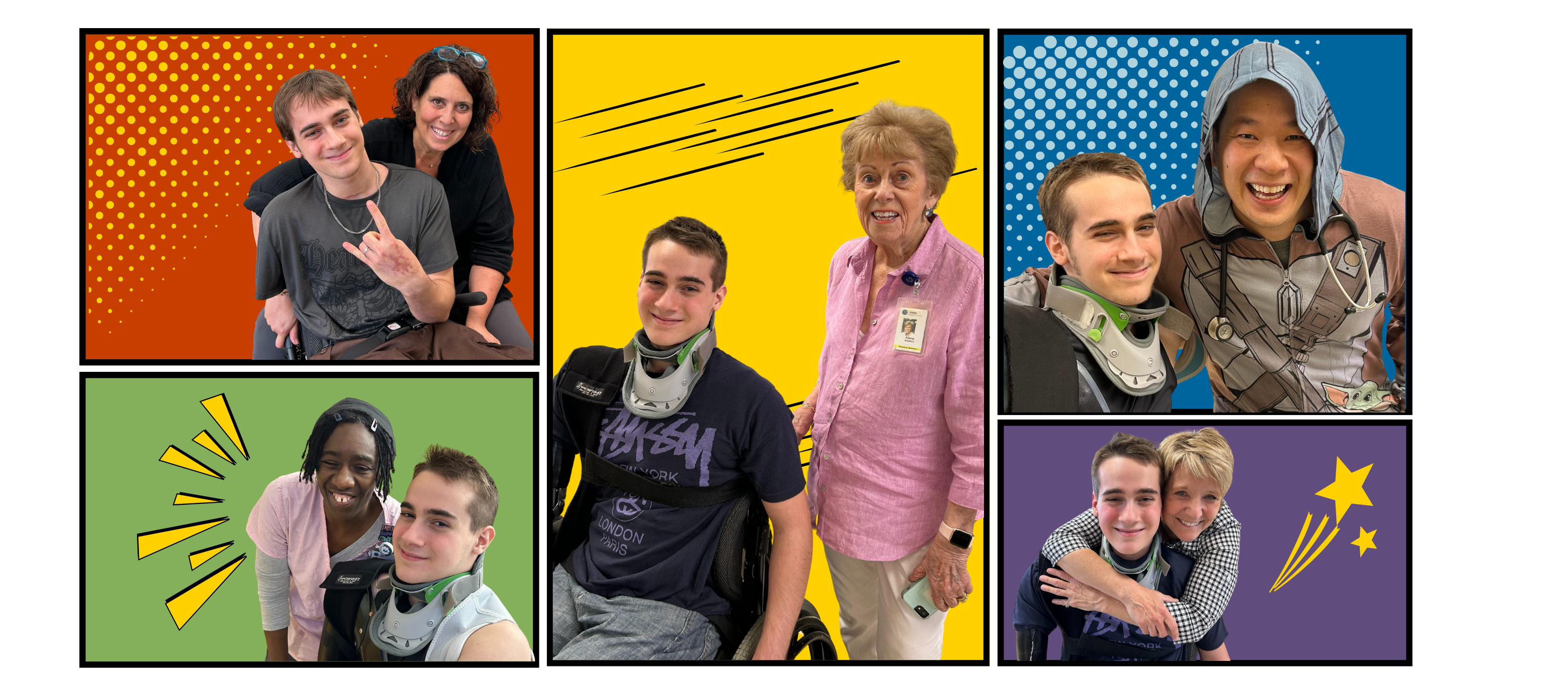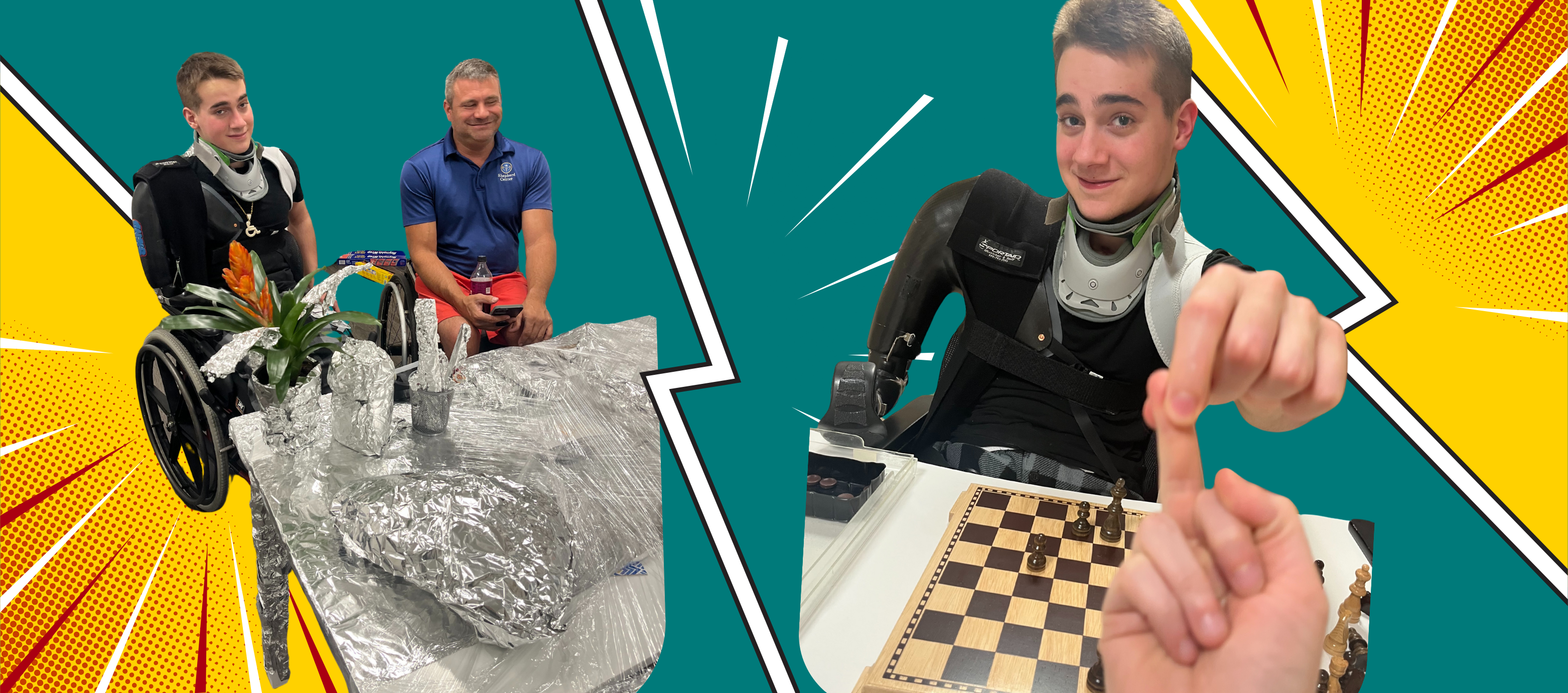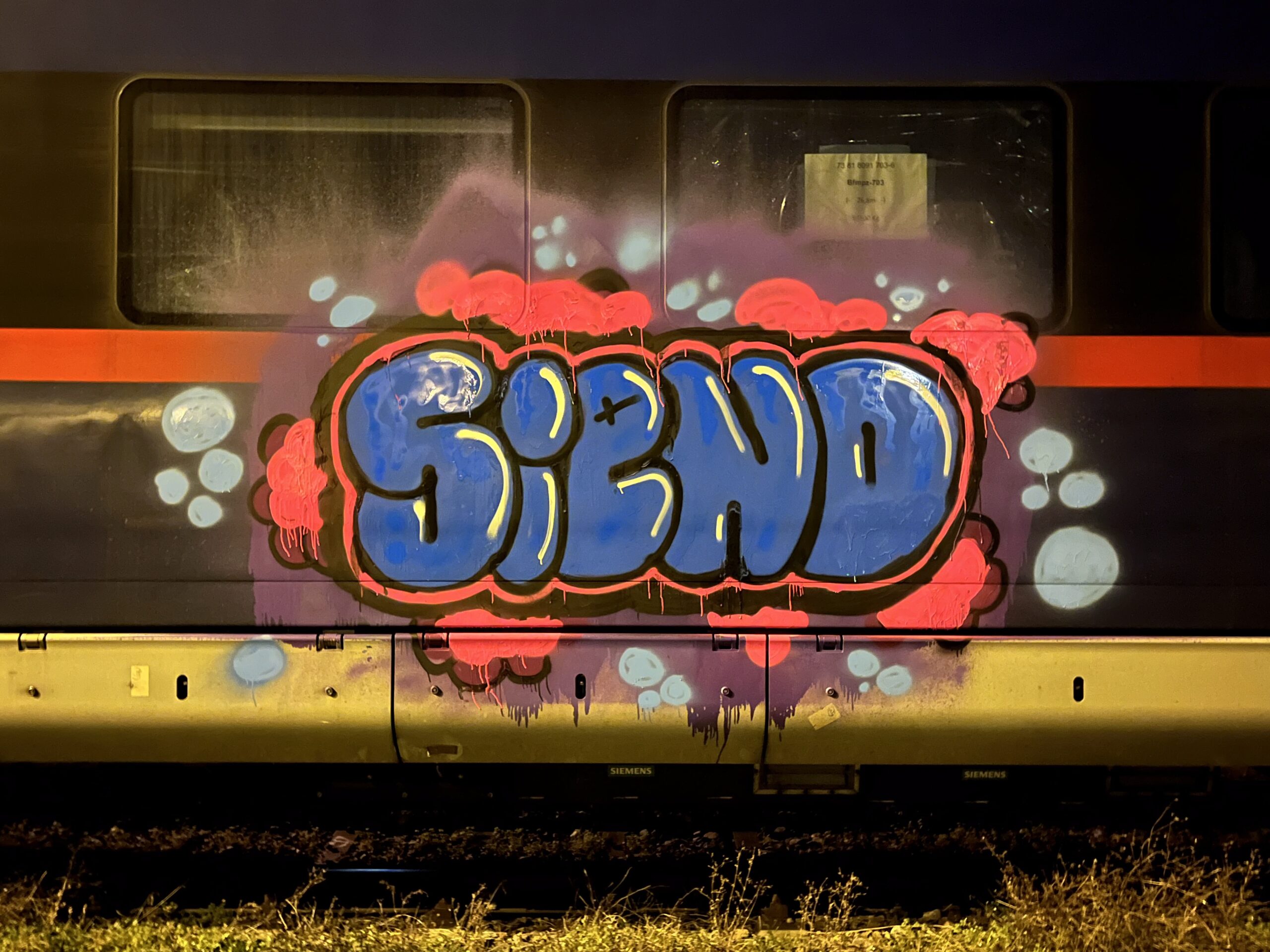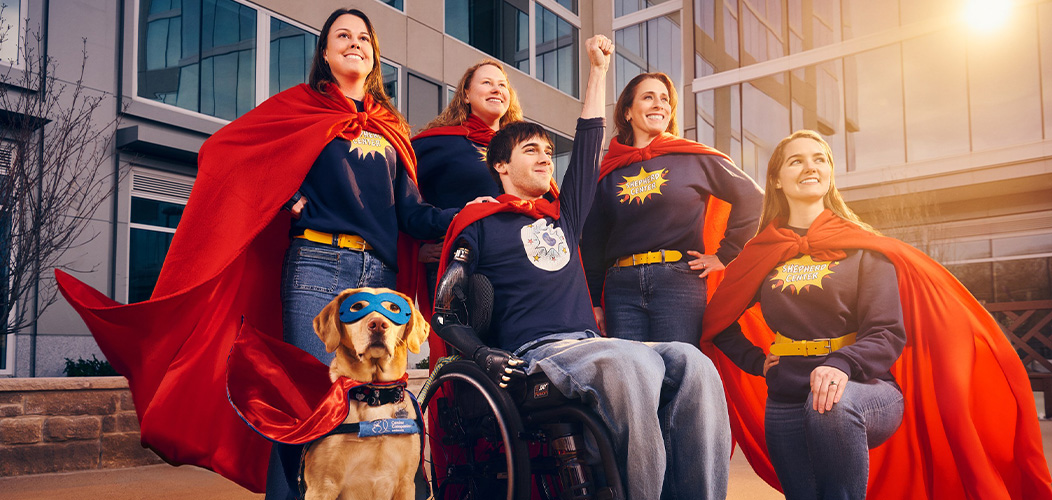Strength, support, and starting again
As a talented street artist under the tag “Sieno” (artistically changed from Siento, meaning “I feel”), Jacob was living in Vienna, Austria, a country where street art is celebrated. While doing street art one day, Jacob was electrocuted through an electrical arc, passed out, and subsequently fell to the ground. The electrocution resulted in an amputation of his right arm, and the fall severed his spine at the T4 and T5 vertebrae. His journey of recovery wasn’t a straight line; there were days filled with hope and progress, and others where frustration made him question whether he’d ever regain the independence he longed for, including a return to his art.
Finding strength in the small victories
“There were nights when I lay awake, wondering if I’d ever get back to the life I knew,” Jacob shares. “Over time, I started to see that progress wasn’t always obvious, but it was always happening. Small victories, like lifting a fork or standing a little longer, reminded me to keep going.”
At Shepherd Center, he wasn’t just a patient – he was part of a team. His mom, his therapists, his doctors, and even one of Shepherd’s beloved facility dogs became his sidekicks in recovery, pushing him forward and believing in him on the hardest days.
“They never let me settle for less than I could achieve. Their quiet confidence and belief in my abilities pushed me further than I thought was possible.”
His mom, Elana, saw the power of those small victories, too. “At first, Jacob didn’t want to talk to anyone – he wasn’t here to make friends,” she recalls. “But the team understood him. They pushed him, made him laugh, and earned his trust. There’s no way he would be where he is today without the people at Shepherd who showed up for him.”

The superpower of resilience and humor
Through every challenge, Jacob discovered something powerful: his resilience was his greatest superpower and humor his secret weapon.
“I learned to sit with discomfort, to push through pain, and to find reasons to laugh in the toughest of moments,” he says. “Laughing with my therapists, playing pranks, watching Game of Thrones with my caregivers, those moments reminded me that joy can still exist, even when life feels heavy.”
One of his proudest milestones came when he transferred into his wheelchair independently, something that seemed impossible.
“I was so focused on what I couldn’t do that I hadn’t stopped to see how far I’d come. The realization hit me like a wave. That moment wasn’t just about moving myself, it was about realizing my own physical, emotional, and mental strength.”
For Elana, some of the most meaningful moments came when Jacob began reconnecting with his passions. As part of his therapy, he was encouraged to practice writing his street art tag on the bathroom mirror using his non-dominant hand – a simple yet powerful act of self-expression.
Later, during a recreation therapy outing, Jacob added his tag to a local street art site in Atlanta, one of countless opportunities that helped him get back to doing what he loved.
“It may seem incremental, but Jacob getting out into the community and adding his art was huge. That kind of encouragement helped him believe anything was possible,” she reflects.

Achieving the ultimate goal
But his biggest victory? Making it to his sister’s high school graduation in Austria, just five months after his injury.
“From day one, that was my goal,” he says. “Doctors told my mom to temper my expectations, but I refused to accept that.”
“Everyone knew Jacob’s goal was to get to Austria,” Elana reflects. “We were discharged from Shepherd Center, and that night, Jacob and I were alone on a commercial flight to Vienna. I think I was more nervous than he was, but we did it.”
For Jacob, this moment wasn’t just about reaching a personal goal, it was a symbol of how far he had come. “It reminded me that that recovery isn’t just about physical healing; it’s about fighting for the moments that truly matter.”
A new mission for the future
Jacob’s mission continues. He’s embracing his future with determination, considering a path in law or psychiatry to advocate for others facing adversity. This has included being in a documentary to highlight the dangers of unmarked high voltage areas.
“Hope used to feel like an abstract idea. Now it’s something I carry with me; an active force I cultivate every day.”
With his superfamily by his side, Jacob isn’t just beginning again, he’s writing a whole new story, one built on strength, purpose, and the unwavering belief that even in the hardest moments, there is always hope.

About Shepherd Center
With five decades of experience, Shepherd Center provides world-class clinical care, research, and family support for people experiencing the most complex conditions, including spinal cord and brain injuries, multi-trauma, traumatic amputations, stroke, multiple sclerosis, and pain. An elite center ranked by U.S. News as one of the nation’s top hospitals for rehabilitation, Shepherd Center is also recognized as both Spinal Cord Injury and Traumatic Brain Injury Model Systems. Shepherd Center treats thousands of patients annually with unmatched expertise and unwavering compassion to help them begin again.
Discover how you can become a patient, support our mission, or join our team.
